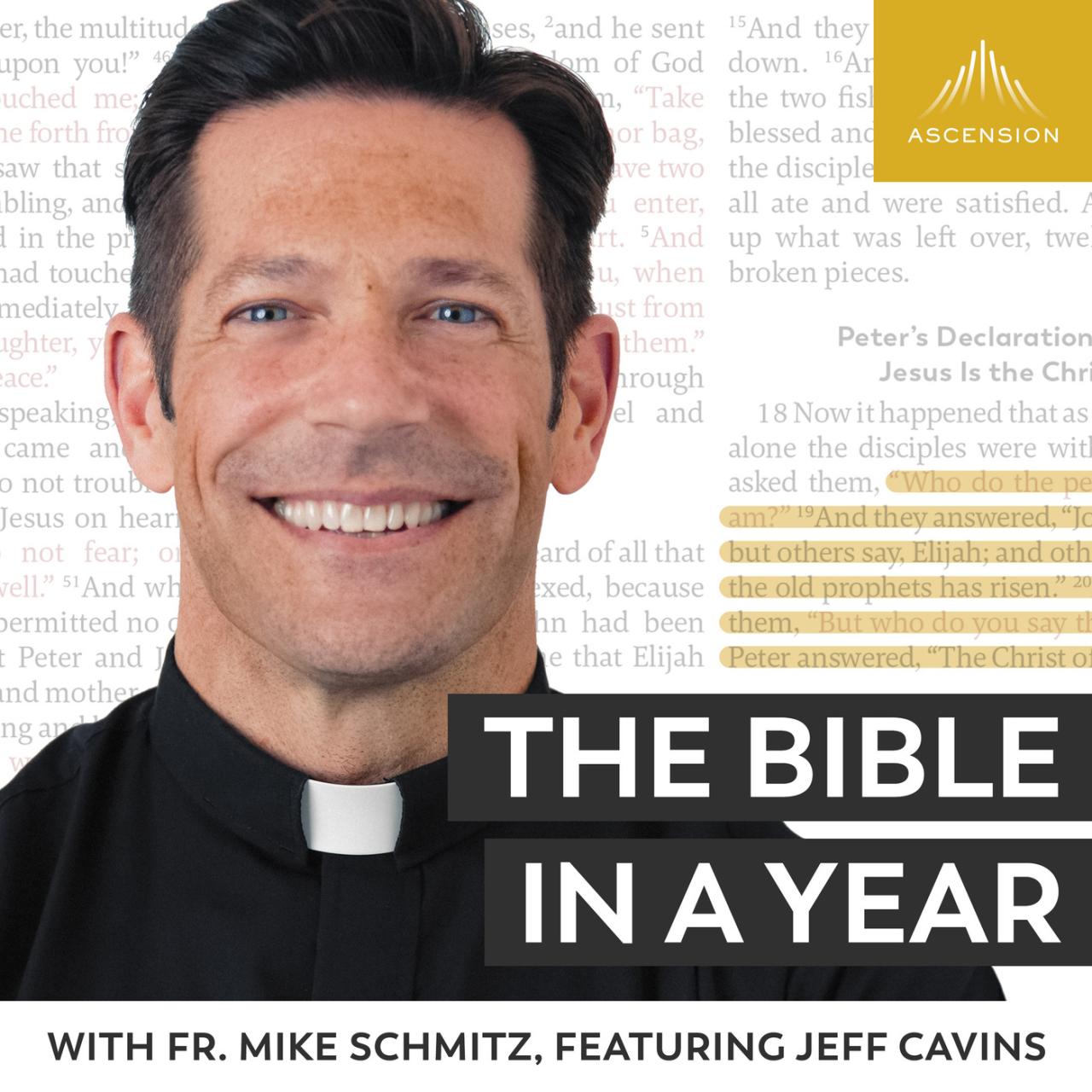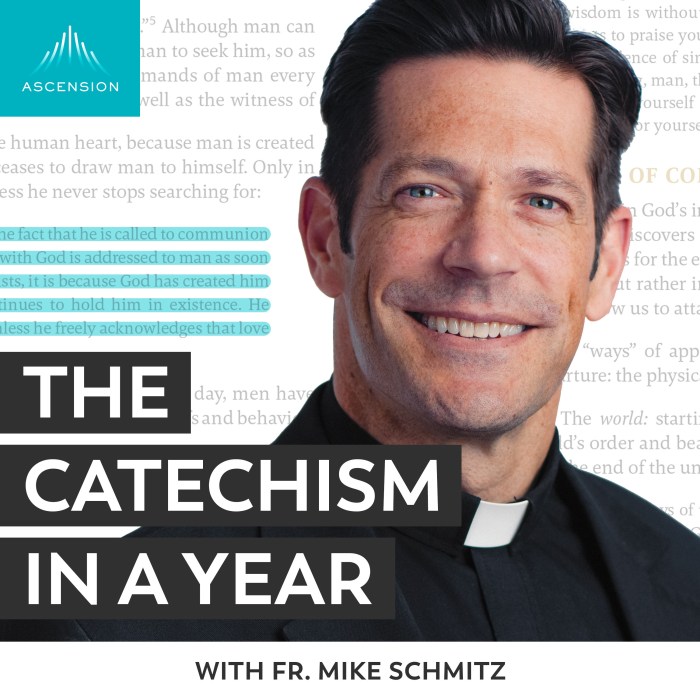Catechism in a year day 227 – As we delve into Catechism in a Year, Day 227 invites us on an enlightening journey through the profound depths of our faith. With each passing day, we uncover a treasure trove of wisdom that guides our path and enriches our understanding of the divine.
Today’s exploration promises to illuminate the historical context, practical applications, and captivating symbolism that lie at the heart of this day’s teachings. Prepare to be captivated as we embark on this exploration together.
Introduction

Definition of Catechism in a Year
Catechism in a Year is a daily devotional guide that takes readers through the entire Catechism of the Catholic Church over the course of a year. It is designed to help Catholics deepen their understanding of their faith and grow in their relationship with God.
Significance of Catechism in a Year, Catechism in a year day 227
Catechism in a Year is a valuable resource for Catholics who want to learn more about their faith. It provides a comprehensive overview of the Catechism, which is the official teaching of the Catholic Church. The guide is written in a clear and concise style, making it easy to understand even for those who are new to the faith.
Catechism in a Year Day 227 provides insights into the Catholic faith. If you’re seeking additional learning materials, consider exploring the eric a disparu answer key for further clarification on a specific topic. Returning to Catechism in a Year Day 227, let’s delve deeper into the richness of the Catholic tradition.
Context for Day 227
Day 227 of Catechism in a Year focuses on the Sacrament of Penance. This sacrament is also known as Confession or Reconciliation. It is a way for Catholics to receive forgiveness for their sins and to be reconciled with God.
Daily Reading and Reflection

For today’s session, we’ll delve into the assigned reading and explore its key themes and insights. Let’s begin with a brief overview of the passage.
The assigned reading for Day 227 focuses on the importance of daily spiritual practices, particularly the significance of daily reading and reflection. It highlights how these practices can nurture our faith and deepen our understanding of God’s word.
Importance of Daily Reading
The reading emphasizes the importance of regular engagement with the Bible. It reminds us that the Bible is not just a book to be read once but a living document that offers ongoing guidance and inspiration. Through daily reading, we can encounter God’s word, learn about his character, and receive instruction for our daily lives.
Furthermore, daily reading helps us stay grounded in our faith. In a world filled with distractions and competing messages, reading the Bible provides an anchor that keeps us connected to God’s truth and purpose for our lives.
Benefits of Daily Reflection
In addition to daily reading, the passage also highlights the significance of daily reflection. It encourages us to take time to ponder the Scriptures we have read and apply them to our own lives.
Reflection allows us to personalize the Bible’s teachings and make them relevant to our daily experiences. It helps us identify areas where we need growth and transformation, and it empowers us to make choices that align with God’s will.
By engaging in daily reading and reflection, we create a spiritual rhythm that nourishes our faith and equips us to live out our Christian calling with purpose and conviction.
Historical Context

The topic covered on Day 227, the concept of justification by faith, has a rich historical background that significantly shaped the development of Christian theology. It emerged as a central tenet of the Protestant Reformation, particularly in the teachings of Martin Luther and John Calvin.Luther’s
experiences with the guilt and fear of damnation led him to reject the Catholic Church’s emphasis on works and sacraments as the means of salvation. Instead, he emphasized the importance of faith alone in the atoning sacrifice of Jesus Christ as the only way to obtain forgiveness and eternal life.
This doctrine became a cornerstone of Protestant theology and has profoundly influenced the understanding of salvation in Christianity.
Justification by Faith in the Catechism
The Catechism of the Catholic Church addresses the topic of justification by faith in various sections, including paragraphs 1810-1821. It acknowledges the importance of faith in salvation while emphasizing the role of both faith and works in the process of justification.
The Catechism also stresses the need for cooperation with God’s grace and the transformative power of the sacraments in the journey towards salvation.
Practical Application: Catechism In A Year Day 227
The teachings of Day 227 provide valuable guidance for our daily lives and moral decision-making. By understanding the principles of natural law and conscience, we can discern right from wrong and act accordingly.
One practical application is in our interactions with others. The principle of respect for human dignity demands that we treat all people with kindness, compassion, and justice. This means avoiding actions that harm or exploit others, and instead promoting their well-being.
Moral Decision-Making
The teachings of Day 227 can guide us in making moral decisions. By examining our actions in light of natural law and conscience, we can discern whether they are morally acceptable or not. For example, if we are considering an action that would harm another person, we can use the principle of respect for human dignity to guide our decision and choose a course of action that respects the other person’s rights.
Comparisons and Contrasts

The teachings of Day 227 resonate with concepts found in other religious traditions, yet also possess distinctive aspects that reflect the unique perspective of Catholicism.
In many religions, the idea of a higher power or deity is central. However, Catholicism emphasizes the Trinity, the belief in one God existing in three persons: the Father, the Son, and the Holy Spirit. This concept is unique to Christianity and distinguishes it from other monotheistic faiths.
Comparative Perspective: The Importance of Love
- Both Christianity and Buddhism emphasize the importance of love and compassion. In Christianity, love is seen as the greatest commandment, while in Buddhism, it is a central tenet of the Noble Eightfold Path.
- However, the Catholic perspective on love is distinctive in its emphasis on the love of God for humanity, as expressed through the incarnation of Jesus Christ.
Contrasting Viewpoint: The Nature of Salvation
- While many religions offer paths to salvation or liberation, the Catholic view of salvation is distinct. It is not seen as a purely individualistic pursuit but rather as a communal journey.
- The Catholic Church teaches that salvation is achieved through faith in Jesus Christ, the sacraments, and participation in the life of the Church.
Symbolism and Imagery

The reading for Day 227 employs powerful symbols and imagery to convey its teachings and enhance our understanding.
One prominent symbol is the “living water” that Jesus offers to the Samaritan woman at the well. This water represents the grace and salvation that Jesus offers to all who come to him in faith. It is a symbol of eternal life and refreshment, quenching the thirst for spiritual fulfillment.
Significance of Symbols
These symbols play a crucial role in the reading, as they:
- Provide a tangible and relatable way to grasp abstract concepts.
- Create a vivid and memorable experience for the reader.
- Convey deeper truths that may not be immediately apparent from the literal meaning of the text.
Table of Examples
The following table provides examples of how the teachings of Day 227 can be applied in different situations:
| Situation | Application |
|---|---|
| Making a difficult decision | Reflect on the teachings about discernment and seek guidance from the Holy Spirit. |
| Dealing with temptation | Recall the teachings about the power of prayer and the importance of seeking support from others. |
| Facing adversity | Remember the teachings about perseverance and the promise of God’s presence. |
| Forgiving someone who has wronged you | Consider the teachings about forgiveness and the healing it can bring. |
| Discerning God’s will | Apply the teachings about discernment and seek guidance from trusted sources. |
Discussion Questions
Engaging in meaningful discussions is crucial for understanding the nuances of the topic at hand. The following questions are designed to stimulate critical thinking, encourage personal reflection, and foster a deeper understanding of the subject matter.
These questions delve into various aspects of the topic, promoting a comprehensive exploration of the material. They encourage participants to connect the topic to their own experiences, evaluate different perspectives, and draw informed conclusions.
- What are the key takeaways from today’s lesson and how do they relate to your personal experiences?
- How can you apply the principles discussed in today’s lesson to your daily life and interactions with others?
- Are there any aspects of the topic that you find challenging or require further clarification?
li>What questions do you have about the topic that could enhance your understanding?
FAQ Compilation
What is the significance of Catechism in a Year?
Catechism in a Year is a comprehensive program that provides a systematic and accessible way to study the teachings of the Catholic Church. It is designed to deepen our understanding of our faith and equip us to live it out more fully.
What is the focus of Catechism in a Year, Day 227?
Day 227 explores the historical context, practical applications, and symbolism associated with a specific topic within the Catechism of the Catholic Church.
How can I apply the teachings of Catechism in a Year to my daily life?
The practical applications discussed in Catechism in a Year provide guidance on how to integrate the teachings of our faith into our daily decisions, actions, and relationships.